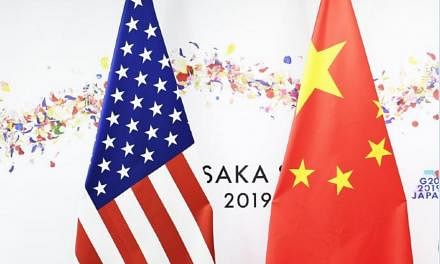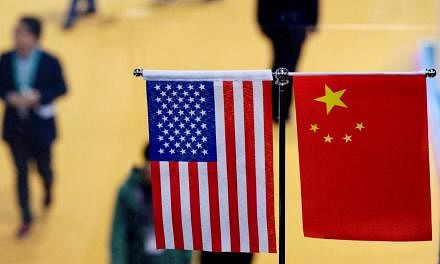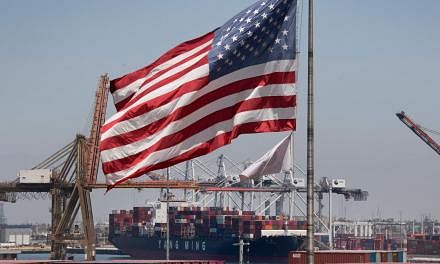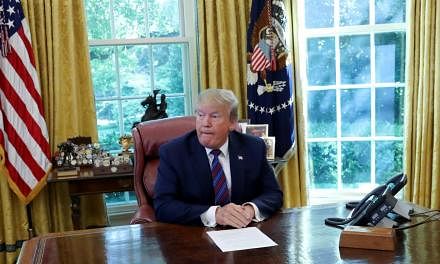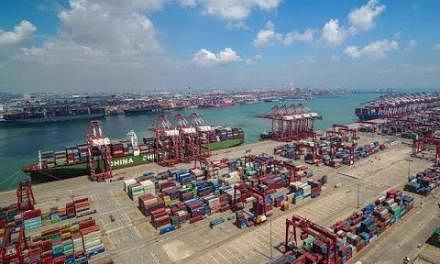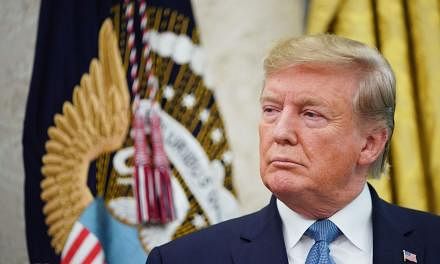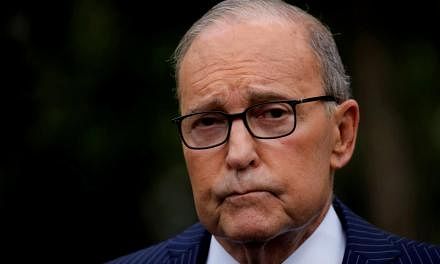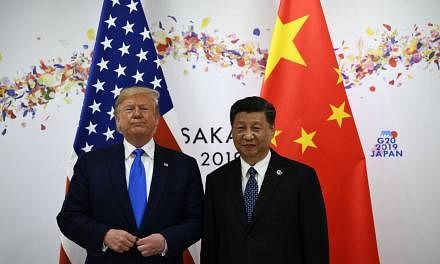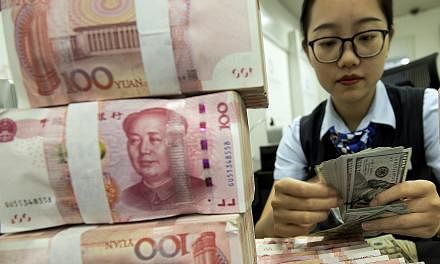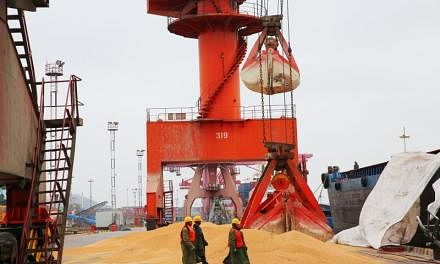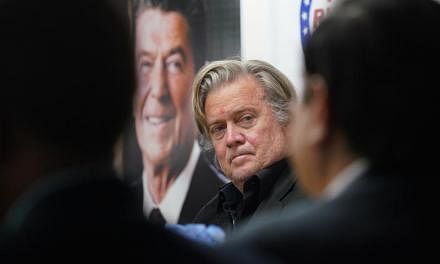WASHINGTON (BLOOMBERG) - High-level trade talks between the US and China have ground to a halt as the Trump administration threatens to escalate a trade war that shows little sign of abating, according to five people familiar with the matter.
The countries held three rounds of formal negotiations since May, led by US Treasury Secretary Steven Mnuchin and Commerce Secretary Wilbur Ross and Vice Premier Liu He in China.
But communications between senior members of the Trump and Xi administrations have petered out, and there's no immediate plan to restart the formal talks, said the people, who spoke on condition of anonymity because the deliberations aren't public.
The diplomatic impasse makes it unlikely the two countries will stand down anytime soon from an intensifying trade war that is roiling financial markets and threatening the broadest global upswing in years.
The Trump administration on Tuesday (July 10) released a proposed list of an additional US$200 billion (S$272 billion) in Chinese goods to be hit with tariffs.
China's Commerce Ministry said the tariffs, which cover everything from refrigerators to handbags, are "totally unacceptable."
The US Trade Representative's office didn't reply to an e-mailed request for comment and the Commerce Department directed queries to the White House, which didn't immediately respond. A Treasury Department spokesman said the agency doesn't comment on the secretary's engagement with counterparts.
Washington and Beijing now have about seven weeks to strike a deal or dig in for a trade war that could upend corporate supply chains and raise prices for consumers.
The tariffs on US$200 billion in Chinese goods are scheduled to take effect after Aug 30, when the administration's consultation process ends.
"It's extremely important that when two governments get into this kind of situation with each other that even if they are fighting on the official front, that they have something going on in the background that enables them at some point to declare a sort of ceasefire," Rufus Yerxa, president of the National Foreign Trade Council, said in a Bloomberg TV interview on Wednesday.
"For the time being the two sides aren't going to acknowledge that. They're positioning themselves for the end game."
While there are no formal talks scheduled, dialogue continues between the two countries among lower-level bureaucrats, according to people familiar with the matter.
Even as he has slapped duties on Chinese goods, President Donald Trump has continued to emphasise his personal friendship with President Xi Jinping.
The administration has also sent signals it's willing to re-engage with China at the top level, said a person familiar with the administration's thinking.
But there are growing signs of frustration on both sides.
On a conference call with reporters on Tuesday, senior Trump administration officials argued that China started the conflict with unfair trading practices and abuse of US intellectual property.
One of the officials said the US has repeatedly made its concerns clear and continues to hope for a negotiated solution, but Beijing hasn't changed its behaviour.
CONFUSING SIGNS
Tensions within the Trump administration over trade are also complicating matters, according two people familiar with the matter.
As the de facto spokesman on economic matters within the cabinet, Mnuchin took the lead early in the negotiations.
But at different points in the talks, other more hawkish members of the administration have taken the helm, such Ross, which has confused the Chinese.
Trump himself is frustrated with Beijing's reluctance to offer more concessions, especially after the US reversed a decision to slap crippling restrictions on Chinese telecom-equipment maker ZTE Corp., according to a White House official who declined to be identified.
The US last month agreed to lift the measures after ZTE pays a record fine and consents to management changes.
On Wednesday, the Trump administration said ZTE took another step toward ending a US ban after ZTE signed an escrow agreement. The company must now deposit US$400 million in escrow.
The president also believes China hasn't been helpful enough in US efforts to convince North Korea to abandon its nuclear weapons programme, said the White House official.
"We agreed to the denuclearisation of North Korea," Trump said on Twitter on Monday. "China, on the other hand, may be exerting negative pressure on a deal because of our posture on Chinese Trade - Hope Not!"
Senator Chuck Grassley, a Republican from Iowa, said he had a "great deal of concern" about the trade spat with China and the level of uncertainty it's creating among farmers and businesses in his state.
Futures for soybeans, a target for China's retaliation, have fallen about 16 percent since the end of May, as the trade conflict was heating up.
"When you don't know what's going to be the outcome, it's very uncertain, and it's had a definite impact," Grassley told Bloomberg TV. "How long is this going to go on? I hope we can settle pretty soon."

